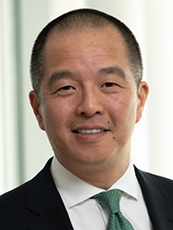Speakers

Prof. Gilberto LEUNG
Hong Kong
Professor Gilberto Leung is a neurosurgeon, Clinical Professor, and holder of the endowed Tsang Wing-Hing Professorship in Clinical Neuroscience at the University of Hong Kong (HKU). He graduated from the University of London with MBBS in 1992. During postgraduate training, he was awarded the Hallett Gold Medal and the J. Douglas Miller Medal in Neurosurgery by the Royal College of Surgeons of England and that of Edinburgh, respectively. He holds a MS, a PhD and a MD from HKU, an Intercalated BSc in Physical Anthropology and an LLB from the University of London, and an LLM in Medical Law and Ethics with Distinction from the University of Edinburgh. He is currently President of the Hong Kong Academy of Medicine, Associate Dean of his HKU medical faculty, Co-Director of the Centre for Medical Ethics and Law at HKU, and Honorary Consultant Neurosurgeon at Queen Mary Hospital, Hong Kong.
A number of criminal prosecutions brought against healthcare professionals over patient deaths, both locally and overseas, have given rise to notable consternations within our profession. While the recent, highly controversial prosecutions against two local doctors for missing a drug prescription had been dropped, there remain considerable uncertainties regarding the criteria for prosecution and the very idea of using the criminal law to deal with medica errors and mistakes.
This paper begins with a discussion of the Prosecution Code in regard to the criteria for instigating criminal prosecution, focusing on the controversies surrounding the applicable criminal offence of gross negligence manslaughter, its application in the medical context, and the impact of criminalisation on the general public interest. It is argued that a distinction ought to be drawn between “honest mistakes” and conscious (or reckless) violations of established rules and standards, that there is a need for greater clarity regarding the threshold for prosecution, and that prosecution should be brought only after due considerations have been given to specific factors found in the healthcare settings.
Attention will also be drawn to the significant role played by expert witness opinion in this particular context and in the administration of justice generally. Key responsibilities and duties owed by expert witnesses and their expectable standards of practice and legal liabilities will be discussed, drawing reference from existing statutory provisions, case law, and the Best Practice Guidelines for Expert Witnesses recently issued by the Hong Kong Academy of Medicine.